Are you in the process of applying for a visa and feeling a bit overwhelmed? It's not uncommon to have questions about the application process, the required documents, and how long it might take. In this article, we'll provide you with a straightforward letter template specifically for requesting updates on your visa application processing. Ready to simplify your visa journey? Let's dive in!

Subject line and contact information
To request the expedited processing of a visa application, individuals must carefully outline their reasons and provide relevant context. Details such as the visa type (e.g., tourist, student, work), applicant's nationality (e.g., Indian, Canadian), and the specific consulate or embassy location (e.g., U.S. Embassy in New Delhi) are crucial. The timeline for travel, particularly for important events such as weddings, business conferences, or study start dates, should be clearly stated. Additionally, mentioning any previous communications with the consulate could strengthen the request. Supporting documents, like travel itineraries or enrollment confirmations, should accompany the request to validate urgency and necessity.
Purpose of the request
Visa application processing involves submitting documentation to obtain entry permissions for foreign countries. This includes completing forms like the DS-160 for the United States. Standard processing times can vary significantly; for example, U.S. tourist visas typically take 2 to 4 weeks. Documents often required include a valid passport, recent photograph adhering to specifications, and proof of financial ability to support oneself during the stay, such as bank statements. Additional requirements for specific visa types, like student visas, may require proof of enrollment in accredited institutions, such as university acceptance letters. Consular interviews may also influence processing timelines, with specific questions pertaining to travel purpose and duration.
Applicant details and identification
The visa application process requires detailed information about the applicant, including full name (as per passport), date of birth (MM/DD/YYYY), nationality (such as American, British), passport number (must be valid for at least six months), and contact information (email and phone number). Additionally, providing details of the intended travel destination, such as city and country, along with travel dates (departure and return) is crucial. Supporting documents should include proof of accommodation, financial statements indicating sufficient funds for the duration of stay, and an itinerary outlining planned activities. An affidavit confirming awareness of visa conditions and local laws may also be necessary to ensure compliance with travel regulations.
Supporting documents and evidence
The visa application process requires a thorough review of supporting documents and evidence to establish eligibility and intent. Applicants must provide key documents such as a valid passport (minimum six-month validity beyond travel dates), completed visa application forms specific to the destination country (like the Schengen Visa application), proof of accommodation (hotel bookings or invitation letters from hosts), and travel itineraries (flight reservations). Financial evidence, including bank statements demonstrating sufficient funds (typically three to six months of account activity), employment letters, and tax returns may also be necessary to prove the ability to support oneself during the intended stay. Additional documentation may include medical insurance coverage (minimum EUR 30,000 for Schengen countries), and any relevant certificates (like marriage certificates for family reunification visas) to support the application's purpose.
Closing statement and contact information
A well-crafted closing statement for a visa application processing request reinforces the applicant's intention and appreciation for the authorities' attention. The applicant expresses gratitude for reviewing the application, emphasizing eagerness for a positive outcome. Clear contact information follows, ensuring accessibility for follow-up questions. Including multiple methods, such as email and phone number, facilitates efficient communication with visa processing officers. Additionally, it's beneficial to reassert the willingness to provide any further information or documents if required to support the application.
Letter Template For Request Visa Application Processing Samples
Letter template of visa application processing request for business travel.
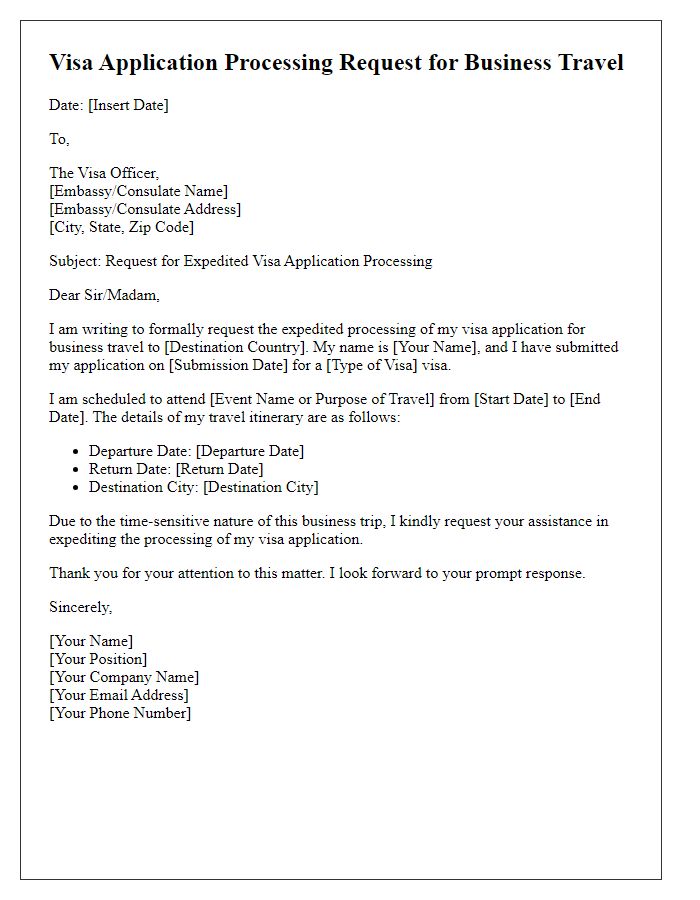
Letter template of visa application processing request for family visit.
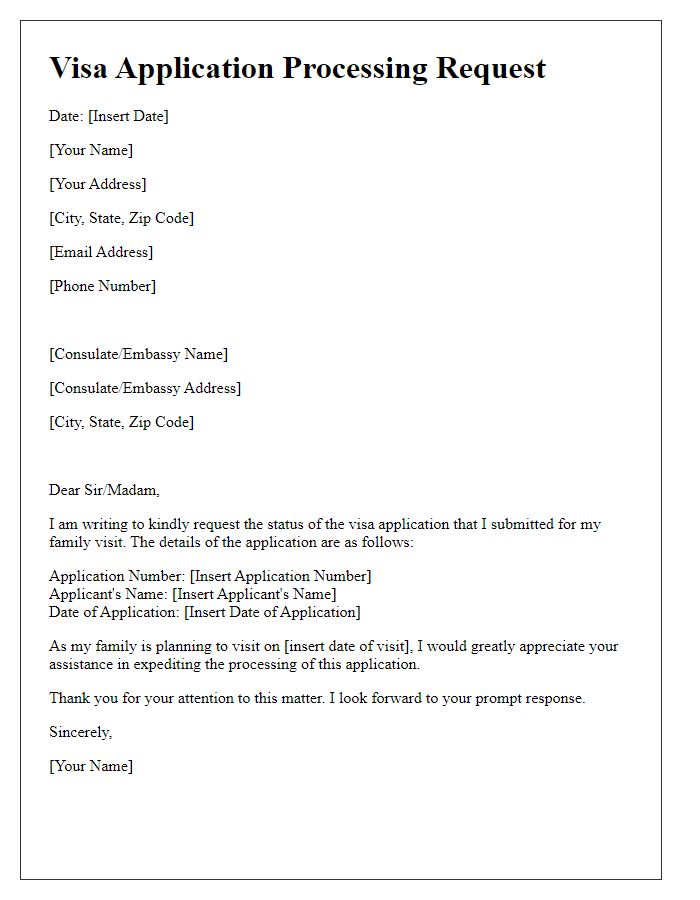
Letter template of visa application processing request for study abroad.
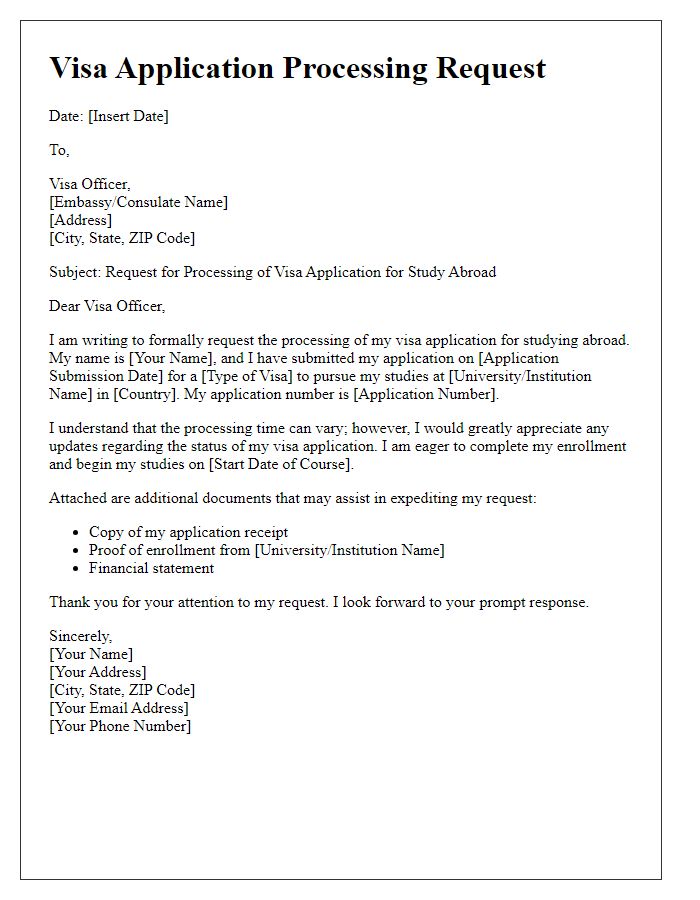
Letter template of visa application processing request for tourist visa.
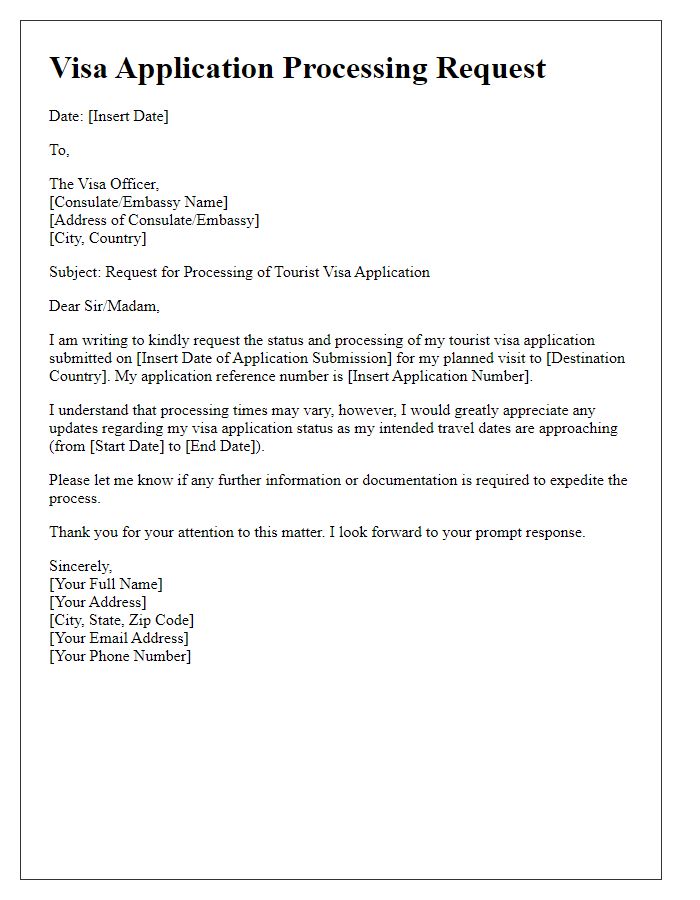
Letter template of visa application processing request for medical purposes.
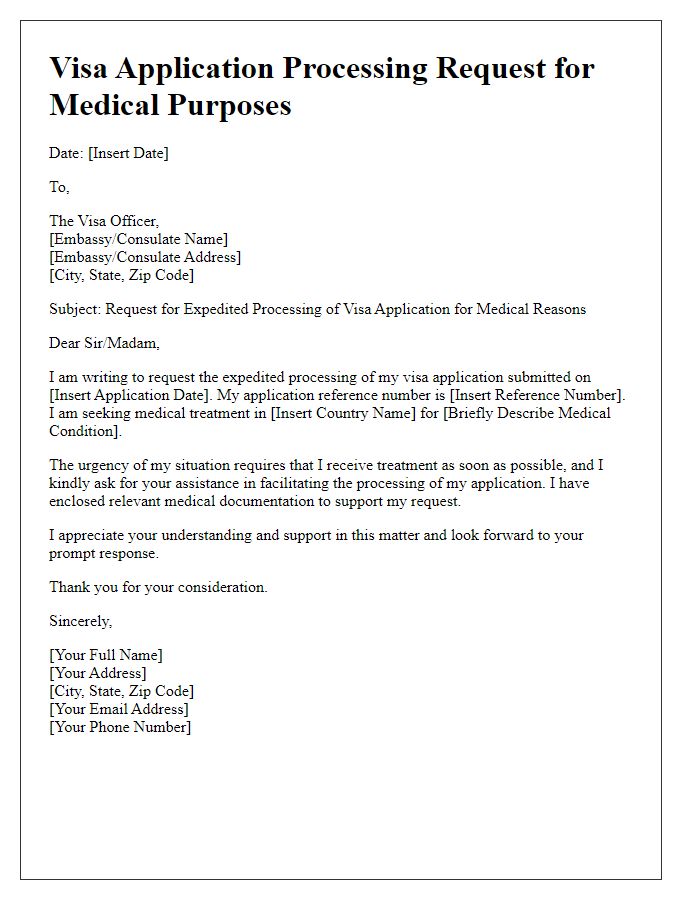
Letter template of visa application processing request for conference attendance.
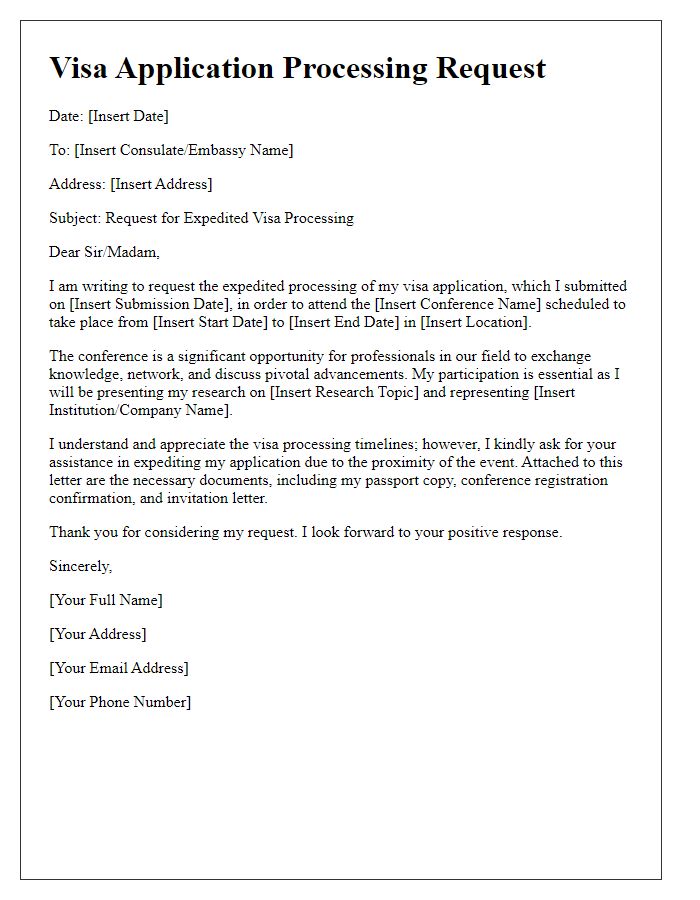
Letter template of visa application processing request for job interview.
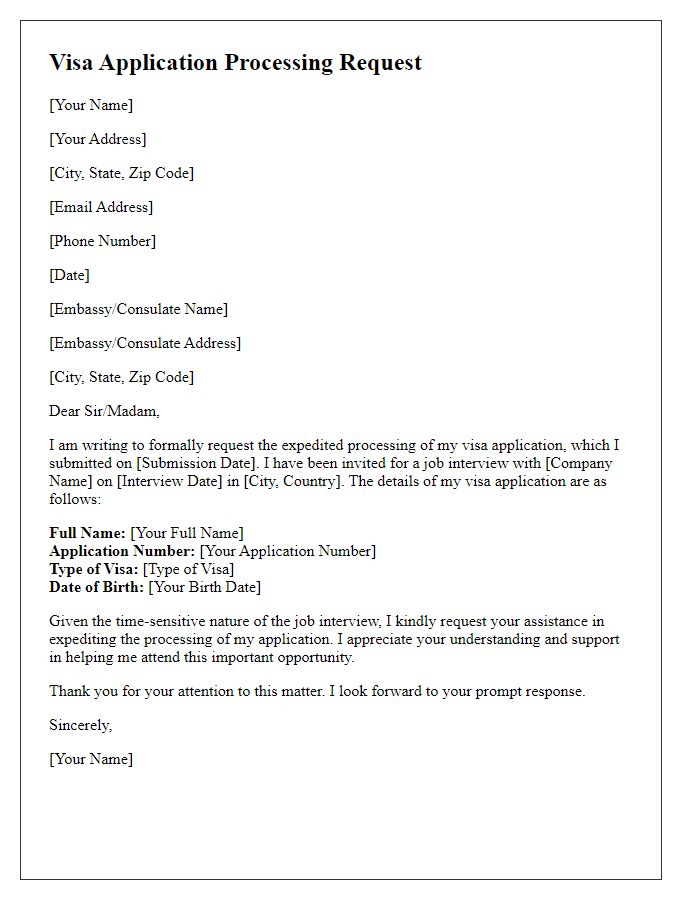
Letter template of visa application processing request for cultural exchange.
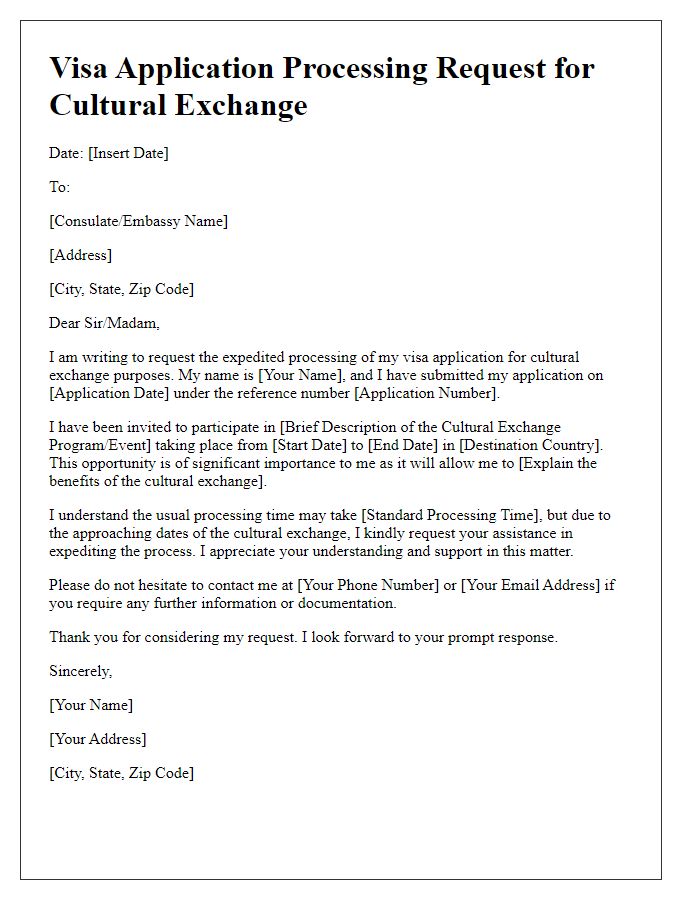

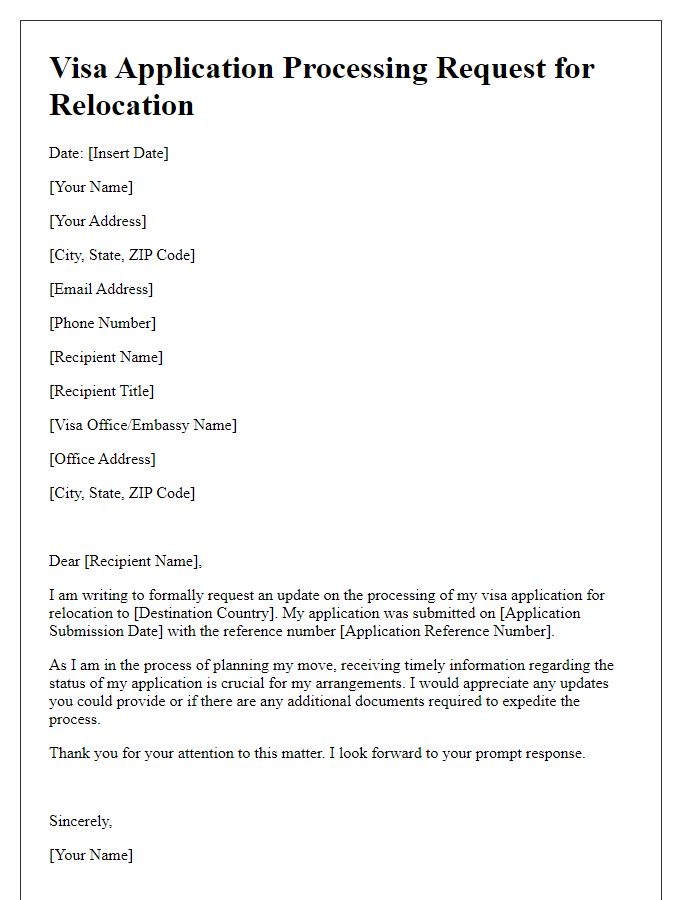
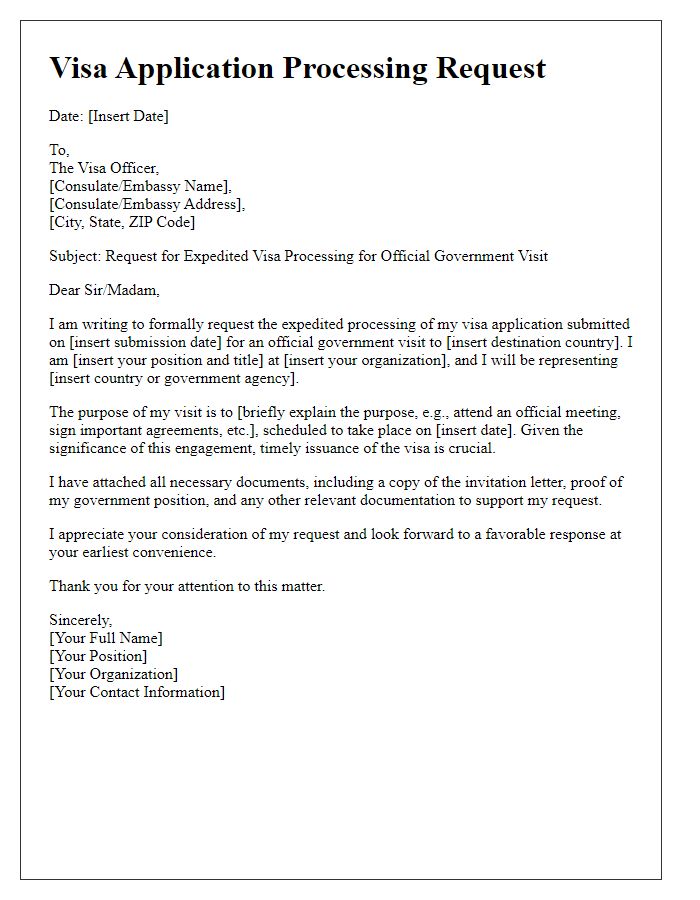

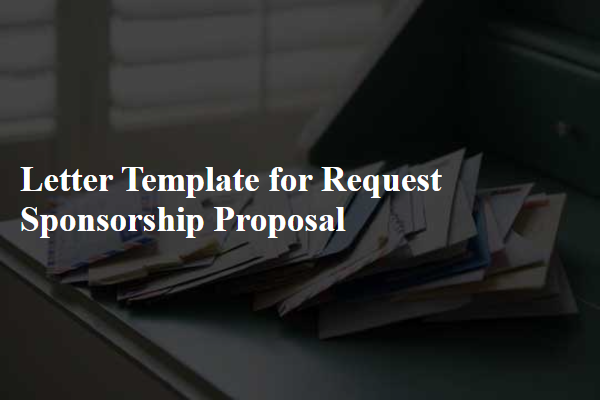
Comments